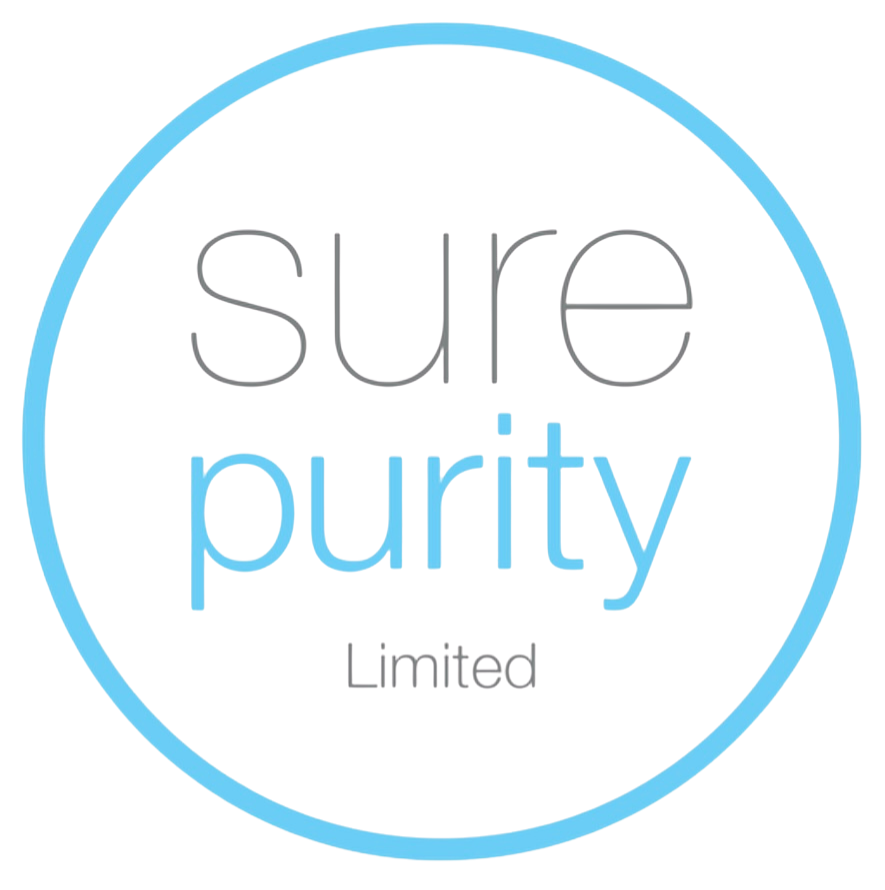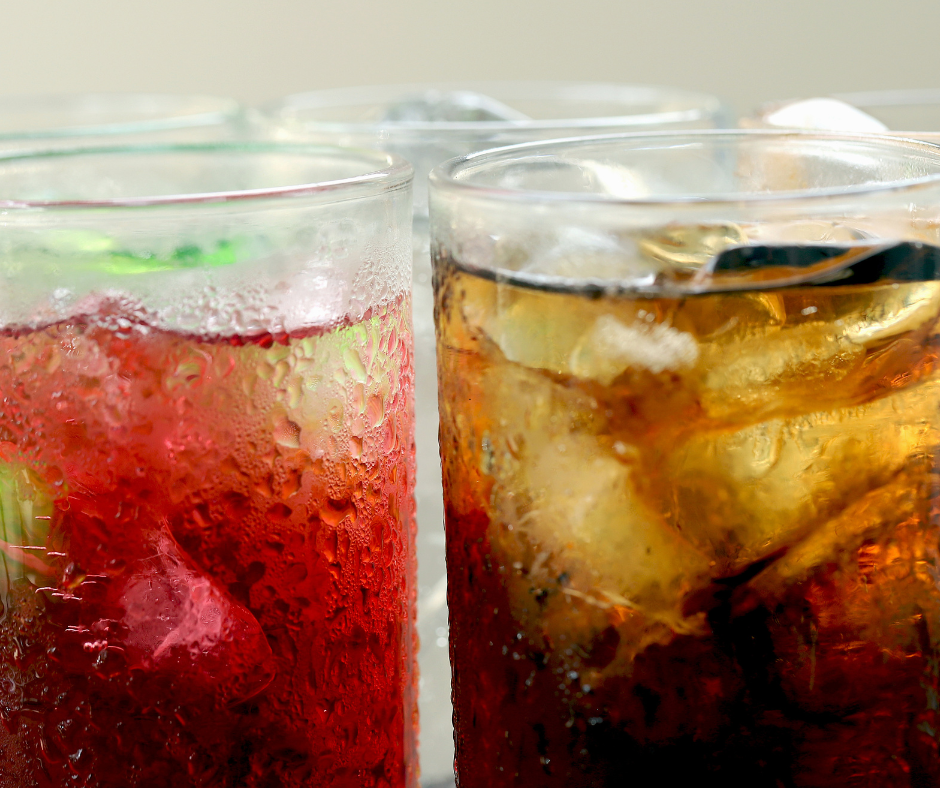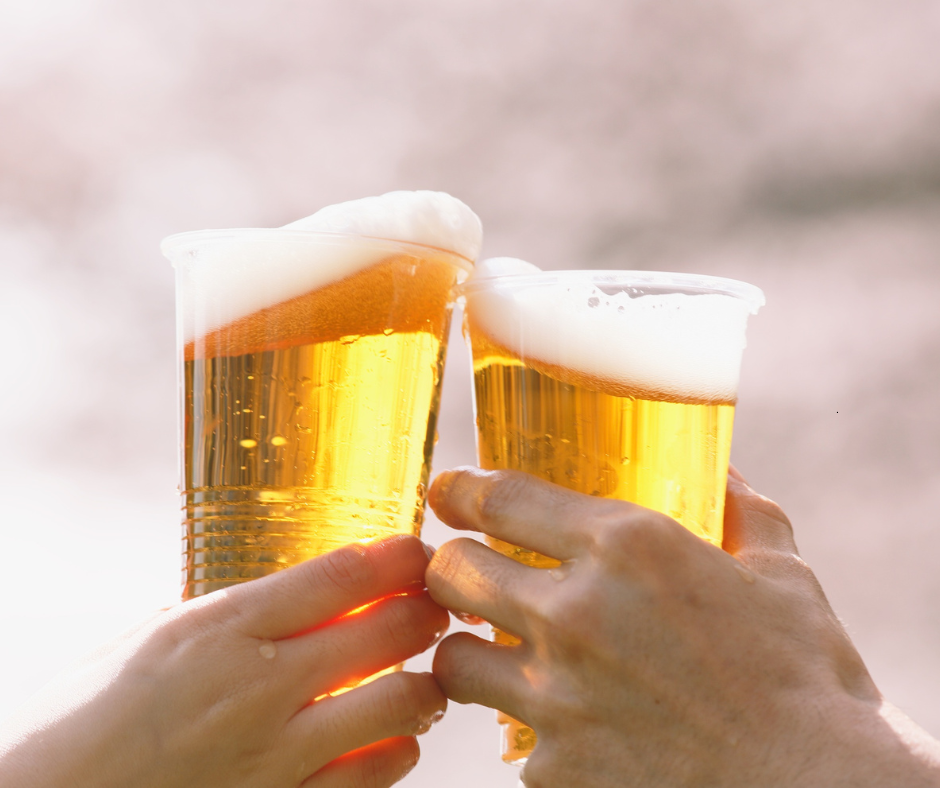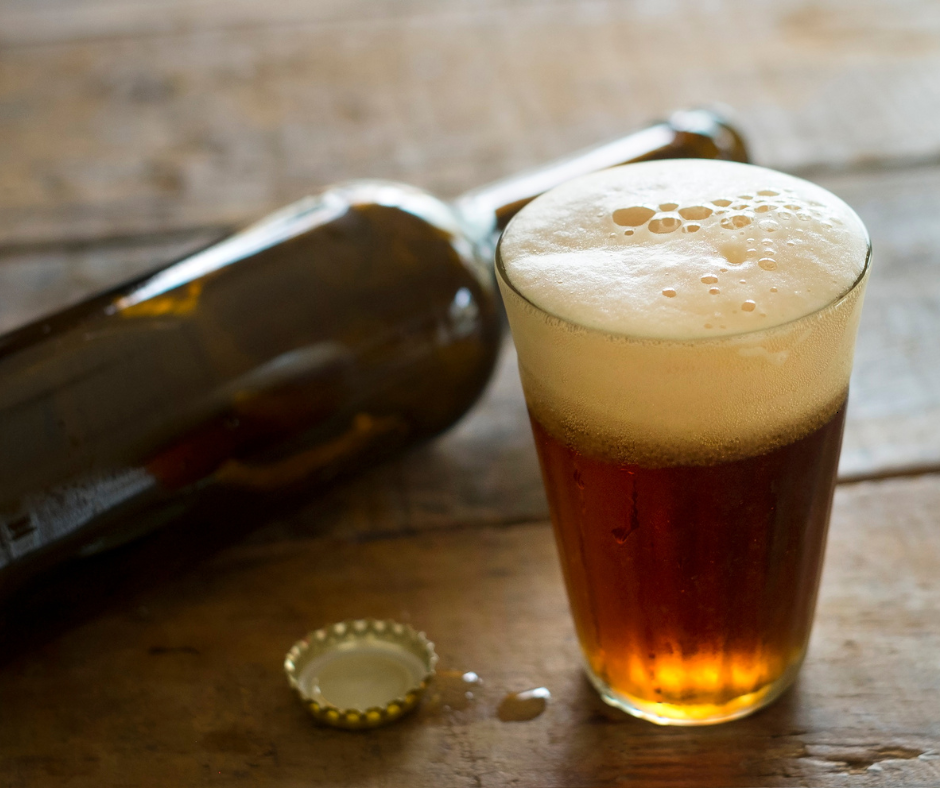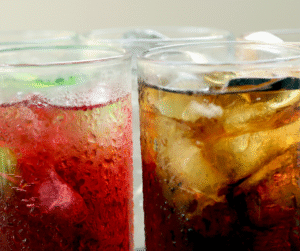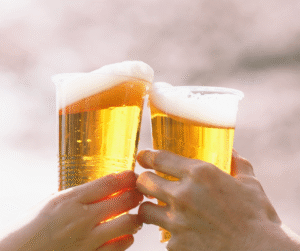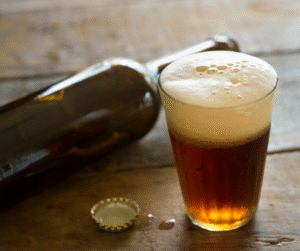You’ve spent time perfecting your recipe, balancing flavours, and ensuring every drink you serve meets the highest standards. But what if the problem isn’t your ingredients—it’s your CO₂?
Flat beer, off-tasting soft drinks, or strange aromas in carbonated beverages can all stem from low-quality CO₂. Many beverage producers assume all CO₂ is the same, but impurities can ruin taste, introduce health risks, and damage your brand’s reputation.
Contaminants like benzene, sulphur compounds, hydrocarbons, and microbes can enter your CO₂ supply, affecting carbonation, aroma, and flavour. If your CO₂ isn’t as pure as you think, your customers will notice.
In this article, the Sure Purity experts will be revealing all about the risks of low-quality CO₂, Including the financial and reputational damage it can cause, and how to protect your beverages – and brand. Whether you run a brewery, soft drinks business, or bar, ensuring the highest CO₂ purity is key to delivering the perfect drink—every time.
Why CO₂ Purity Matters in the Beverage Industry
The Role of CO₂ in Carbonated Beverages
CO₂ does more than just add fizz to drinks. It enhances mouthfeel, brings out aromas, and balances flavours. A well-carbonated beverage feels crisp, refreshing, and consistent in every sip.
The quality of CO₂ directly affects how a drink tastes and how long it stays fresh. Poor-quality CO₂ can make a beverage taste flat, metallic, or even sour. This is why not all CO₂ is the same.
Many assume that food-grade CO₂ is pure enough for drinks. But food-grade CO₂ only meets basic purity standards for general food processing. Beverage-grade CO₂ undergoes additional purification to remove contaminants that can affect taste, aroma, and safety. Using low-grade CO₂ in beverages can lead to unpredictable carbonation and a disappointing drinking experience for your customers.
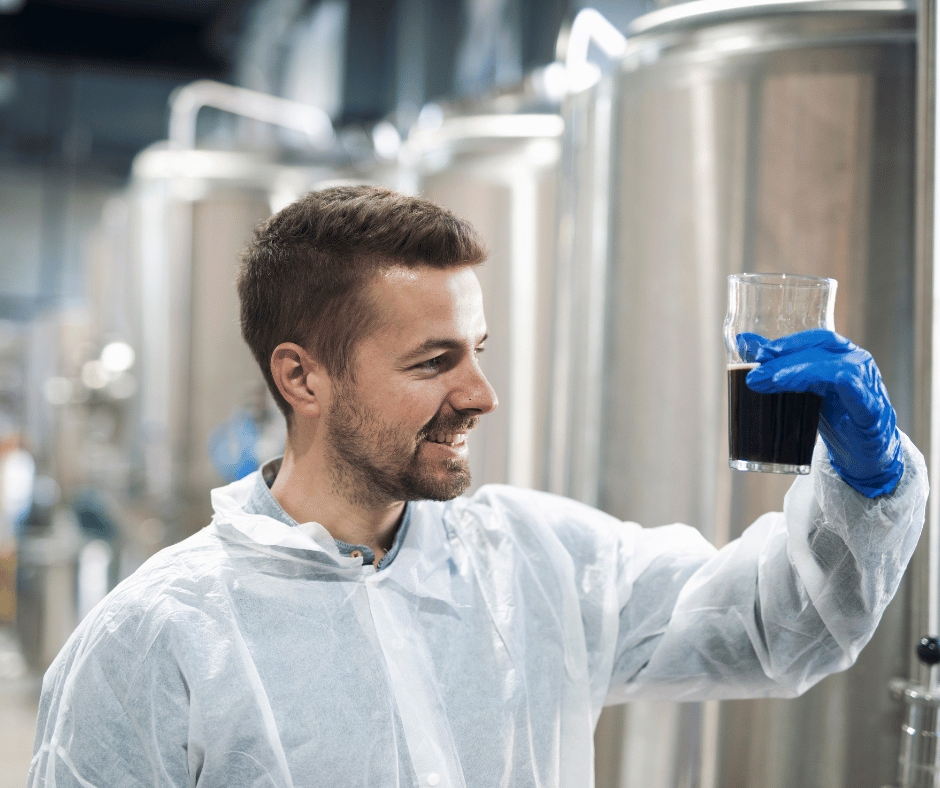
CO₂ Contaminants: The Hidden Danger in Carbonation
CO₂ contamination is a real threat to beverage quality. If your CO₂ contains impurities, those contaminants end up in every drink you produce. Even trace amounts can ruin flavour and pose health risks. Here are some of the most common contaminants:
- Benzene – A known carcinogen often found in industrial CO₂ sources. Even small traces can be harmful.
- Acetaldehyde – Affects flavour and can cause a sharp, unpleasant aroma.
- Sulphur compounds – Can make drinks taste rotten, burnt, or metallic.
- Hydrocarbons – Residues from industrial processes that create an oily, chemical taste.
- Microbial contamination – Bacteria and yeast can grow in CO₂ stored or handled incorrectly, leading to off-flavours and potential health risks.
These contaminants enter the CO₂ supply through poor processing, improper storage, or contamination at the point of use. If your CO₂ supplier doesn’t follow strict purification and handling standards, your beverage quality—and your brand—could suffer.
To maintain product consistency and customer satisfaction, you need high-purity beverage-grade CO₂. Without it, you risk serving drinks that taste off, go flat too quickly, or—worst of all—become unsafe to consume.
But how can you ensure that your drinks are meeting this grade? Well – we have a solution for that.
For Breweries and Large Beverage Manufacturers: The Carboguard system provides multi-stage filtration, effectively removing impurities such as benzene, acetaldehyde, sulphur compounds, hydrocarbons, and microbial contaminants from your CO₂ supply. This ensures consistent carbonation, preserving the intended taste and aroma of your beverages.
For Smaller Operations and Bars: The Carboguard Mini offers the same robust filtration capabilities in a compact design, ideal for establishments with limited space or lower CO₂ consumption. This system ensures that every drink you serve meets the highest quality standards, enhancing customer satisfaction and protecting your brand’s reputation.
By integrating Sure Purity’s filtration systems, you can confidently maintain beverage quality, comply with safety regulations, and uphold your brand’s integrity in a competitive market.
The Cost of Poor-Quality CO₂ for Beverage Brands
Your customers expect a crisp, refreshing drink with every purchase. But low-quality CO₂ can destroy that experience. Poor gas purity leads to flat beer, weak sodas, and unpleasant aftertastes, all of which drive customers away.
Real-world cases have shown the damage that CO₂ contamination can cause. Breweries and soft drink manufacturers have faced consumer complaints, bad reviews, and even product recalls due to CO₂-related quality failures. When a drink doesn’t meet expectations, customers won’t hesitate to switch brands.
Contaminants in CO₂ don’t just affect carbonation—they interact with your beverage ingredients. Benzene, sulphur compounds, and hydrocarbons can create metallic, sour, or chemical-like flavours, making your drinks undrinkable. Even small traces of microbial contamination can lead to cloudiness or visible particles, making your product look unappealing.
Financial Losses Due to Recalls and Wasted Product
If your CO₂ supply isn’t pure, it can cost your business thousands in wasted product. Contaminated CO₂ means entire production batches may need to be recalled or discarded, leading to huge financial losses.
Even minor inconsistencies in CO₂ quality force manufacturers to reformulate or re-carbonate drinks, increasing operational costs. Rejected products add strain on production teams and disrupt supply chains.
Worse still, reputation damage leads to lost sales. Retailers won’t hesitate to delist a product if customers complain. Bars and breweries risk losing loyal patrons if their drinks fail to deliver the expected quality.
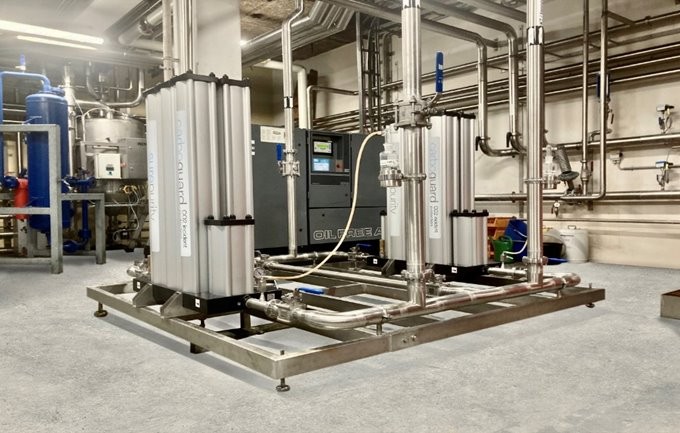
Compliance Risks and Legal Liabilities
Beverage manufacturers must meet strict safety regulations when using CO₂ in production. Low-quality CO₂ puts your business at risk of regulatory violations, fines, and legal action.
Industry regulations that govern CO₂ purity include:
- ISO 22000 – International food safety management standards.
- EU Food Contact Materials Regulation (EC) 1935/2004 – Ensures that materials in contact with food, including CO₂, do not pose health risks.
- FDA Title 21 CFR – Regulates indirect food additives, including gases used in beverage production.
Failure to comply with these standards can lead to compliance failures, legal disputes, and loss of certification. In extreme cases, regulators may halt production or issue mandatory recalls, further damaging profitability.
Trust and Brand Reputation Damage
Once trust is lost, it’s nearly impossible to regain. If customers experience off-flavours, flat drinks, or product recalls, they’ll likely share their disappointment online. A single quality failure can lead to negative social media attention, bad reviews, and declining sales.
Some beverage brands have suffered PR crises after using poor-quality CO₂ in their production. Consumers today have high expectations, and when a product falls short, they take their complaints public. Bars, breweries, and soft drink manufacturers risk long-term damage if CO₂ purity isn’t a priority.
The solution? Ensuring only the highest CO₂ purity standards. By using advanced CO₂ filtration from Sure Purity, you can ensure the highest quality pint – every time. This will help your business maintain compliance, customer satisfaction and safeguard your brand reputation.
How Sure Purity Ensures the Highest CO₂ Purity for Your Beverages
Not All CO₂ is Safe for Your Beverages
If you assume that food-grade CO₂ is pure enough for carbonated drinks, you could be making a costly mistake. Food-grade CO₂ meets only basic purity requirements, which means it may still contain benzene, hydrocarbons, sulphur compounds, and other harmful contaminants that alter taste, carbonation, and safety.
For breweries, soft drink manufacturers, and bars, even a small amount of contamination can have a serious impact. A brewery might notice an unexpected metallic or rotten-egg taste in their latest batch of beer. A soft drink manufacturer may experience flat or cloudy beverages despite following their standard production process. In many cases, these issues are traced back to low-quality CO₂ entering the system at some point in the supply chain.
For beverage production, only beverage-grade CO₂ is suitable. This undergoes additional purification to remove impurities and ensure consistent flavour, aroma, and carbonation stability. But even high-quality beverage-grade CO₂ is not enough without a filtration system at the point of use to prevent contamination during storage and dispensing.
How CO₂ Contamination Affects Beverage Producers
The risks of using unfiltered or improperly stored CO₂ go beyond taste and carbonation issues. Consider these real-world scenarios:
- A craft brewery serves its latest IPA, only for customers to return their pints due to an odd aroma. After costly lab testing, they discover that sulphur compounds in the CO₂ supply have tainted the batch. The brewery is forced to discard an entire production run, losing thousands in revenue.
- A soft drink manufacturer experiences an unusual chemical-like taste in their popular cola. After investigation, they find that hydrocarbons in the CO₂ supply have reacted with the beverage formula. The brand must issue a recall, damaging consumer trust and leading to lost retail contracts.
- A high-end bar notices that their carbonated cocktails taste off, with some drinks appearing cloudy or flat. The culprit? Microbial contamination in the CO₂ lines due to improper storage and lack of filtration. Customers take to social media, leaving negative reviews, and the bar’s reputation suffers.
These issues are avoidable with proper CO₂ filtration and ongoing quality control.
Sure Purity’s CO₂ Filtration Protects Your Beverages
Even if your CO₂ supplier provides high-quality gas, contamination can still occur during storage, transport, or dispensing. CO₂ tanks and pipelines can introduce corrosion particles, residual hydrocarbons, and microbial growth, impacting drink quality.
Sure Purity has engineered Carboguard, a multi-barrier CO₂ filtration system designed specifically for beverage production. Carboguard ensures:
- Complete impurity removal – Eliminates benzene, sulphur compounds, hydrocarbons, and microbial contaminants before they reach your drinks.
- Stable carbonation – Prevents flat or inconsistent beverages by maintaining CO₂ purity from start to finish.
- Protection from supply chain contamination – Acts as the final safeguard against impurities introduced during storage or handling.
For smaller operations, bars, and craft breweries, the Carboguard Mini provides the same high-purity filtration in a compact format. If your business relies on kegs, small CO₂ tanks, or on-site carbonation, Carboguard Mini ensures that every pour maintains optimal taste and consistency.
For industrial beverage production, Carbo-Alt delivers high-capacity CO₂ polishing to remove contaminants at scale. Whether you operate a soft drink plant, brewery, or beverage production facility, Sure Purity’s filtration technology guarantees that only the purest CO₂ reaches your drinks.
Frequently Asked Questions (FAQs)
What is food-grade CO₂ purity?
Food-grade CO₂ meets the basic safety standards for use in food processing and packaging. However, it does not always meet the strict purity requirements for beverages. It can still contain trace amounts of benzene, hydrocarbons, sulphur compounds, and other impurities that may affect taste, aroma, and carbonation. Beverage-grade CO₂ undergoes additional filtration and purification to ensure it meets the highest quality standards for carbonated drinks.
What are the main contaminants found in CO₂?
CO₂ can contain several harmful contaminants, including:
- Benzene – A carcinogen often found in industrial CO₂ sources.
- Acetaldehyde – Can create a sharp, off-putting aroma.
- Sulphur compounds – Cause rotten egg, burnt, or metallic tastes in drinks.
- Hydrocarbons – Industrial residues that produce oily or chemical flavours.
- Microbial contamination – Bacteria and yeast growth in improperly stored or handled CO₂.
These contaminants can enter the CO₂ supply during production, storage, or transportation, making it crucial to use filtration technology like Sure Purity’s Carboguard to remove them before they reach your beverages.
How does CO₂ quality affect the taste of beer and soda?
CO₂ directly impacts flavour, carbonation, and mouthfeel in beverages. Poor-quality CO₂ can cause:
- Flat beer or soft drinks due to inconsistent carbonation.
- Off-flavours, including metallic, sour, or chemical-like notes.
- Cloudiness or visible particles, making drinks look unappealing.
Even small contamination levels can ruin the sensory experience of a drink, leading to consumer complaints, brand damage, and lost sales.
Can CO₂ contamination make consumers sick?
Yes. Some CO₂ contaminants pose serious health risks. For example:
- Benzene is a known carcinogen and has strict safety limits in food and drink applications.
- Microbial contamination can introduce bacteria or yeast, leading to potential foodborne illness.
- Sulphur compounds can trigger allergic reactions in sensitive individuals.
Regulatory bodies such as the FDA, EU Food Contact Materials Regulation, and ISO 22000 set strict guidelines to prevent unsafe CO₂ levels in beverages.
How do I know if my CO₂ is pure?
You can check for CO₂ purity by looking for these signs:
- Strange odours – A rotten, metallic, or chemical smell may indicate contamination.
- Off-tasting drinks – Affected carbonation can lead to unpleasant flavours.
- Cloudiness in beverages – Impurities can create visual defects in drinks.
To ensure CO₂ purity, beverage manufacturers should:
- Use on-site CO₂ purity testing equipment to check for contaminants.
- Regularly maintain CO₂ storage tanks and dispensing systems to prevent contamination buildup.
- Invest in high-quality CO₂ filtration, such as Sure Purity’s Carboguard, to remove contaminants at the point of use.
What is the difference between beverage-grade and food-grade CO₂?
Beverage-grade CO₂ undergoes stricter purification and testing compared to food-grade CO₂. While food-grade CO₂ meets basic purity requirements, it may still contain trace contaminants that can impact beverage taste and safety. Beverage-grade CO₂ is filtered to a higher standard to ensure consistent flavour, aroma, and carbonation stability.
Why is CO₂ filtration necessary if my supplier provides high-purity CO₂?
Even if your supplier guarantees high-purity CO₂, contamination can still occur during storage, transport, or dispensing. Pipes, tanks, and distribution lines can introduce unwanted impurities. Point-of-use filtration, like Sure Purity’s Carboguard system, ensures CO₂ remains pure right up to the moment it enters your beverage.
How often should I test my CO₂ for contamination?
Regular CO₂ testing should be part of your quality control process. Beverage producers should:
- Test CO₂ purity on-site at least once per production cycle.
- Monitor storage and dispensing systems for contamination risks.
- Use filtration systems to ensure consistent purity.
CO₂ purity testing helps prevent batch failures, recalls, and product inconsistencies, safeguarding both your brand and consumer trust.
Can CO₂ affect the shelf life of carbonated drinks?
Yes. CO₂ plays a critical role in product stability. Contaminated or low-purity CO₂ can lead to:
- Faster carbonation loss, making drinks go flat before their expiration date.
- Chemical reactions with beverage ingredients, altering taste over time.
- Potential spoilage if microbial contaminants are present.
Using high-purity CO₂ and point-of-use filtration helps maintain shelf life and product consistency.
What regulations govern CO₂ purity in beverages?
CO₂ used in beverages must meet strict food safety standards, including:
- ISO 22000 – International food safety management standards.
- EU Food Contact Materials Regulation (EC) 1935/2004 – Ensures CO₂ does not introduce health risks.
- FDA Title 21 CFR – Regulates indirect food additives, including CO₂ used in drinks.
Beverage manufacturers must comply with these regulations to avoid fines, recalls, and legal liability.
How does Sure Purity help beverage brands ensure CO₂ quality?
Sure Purity’s Carboguard filtration technology removes harmful CO₂ contaminants at the point of use. By integrating Sure Purity’s advanced multi-barrier filtration, beverage producers can:
- Ensure consistent carbonation quality.
- Eliminate impurities that affect taste and safety.
- Protect brand reputation by delivering a reliable product.
Whether you run a brewery, soft drinks plant, or bar, investing in CO₂ filtration helps safeguard your business from quality failures, compliance risks, and customer complaints.
Why Beverage Brands Trust Sure Purity’s CO₂ Solutions
Even with beverage-grade CO₂ from a trusted supplier, regular monitoring and filtration are essential to maintaining quality. Sure Purity’s advanced filtration systems integrate seamlessly into your existing setup, ensuring that:
- CO₂ purity is maintained at every stage of production.
- Impurities are removed before they reach your product.
- Your beverages meet global safety and food-grade compliance standards.
Without Sure Purity’s Carboguard, Carboguard Mini, or Carbo-Alt systems, your CO₂ supply remains vulnerable to contamination risks that can ruin your product, lead to costly recalls, and damage your brand’s reputation.
Proactive CO₂ Quality Control for Your Business
CO₂ purity testing and filtration should be an ongoing process. Beverage manufacturers, breweries, and bars can take control of their CO₂ quality by:
- Using on-site purity testing equipment to detect contamination before it affects production.
- Maintaining storage tanks and pipelines to prevent buildup and microbial growth.
- Installing Sure Purity’s Carboguard system for final-stage filtration and peace of mind.
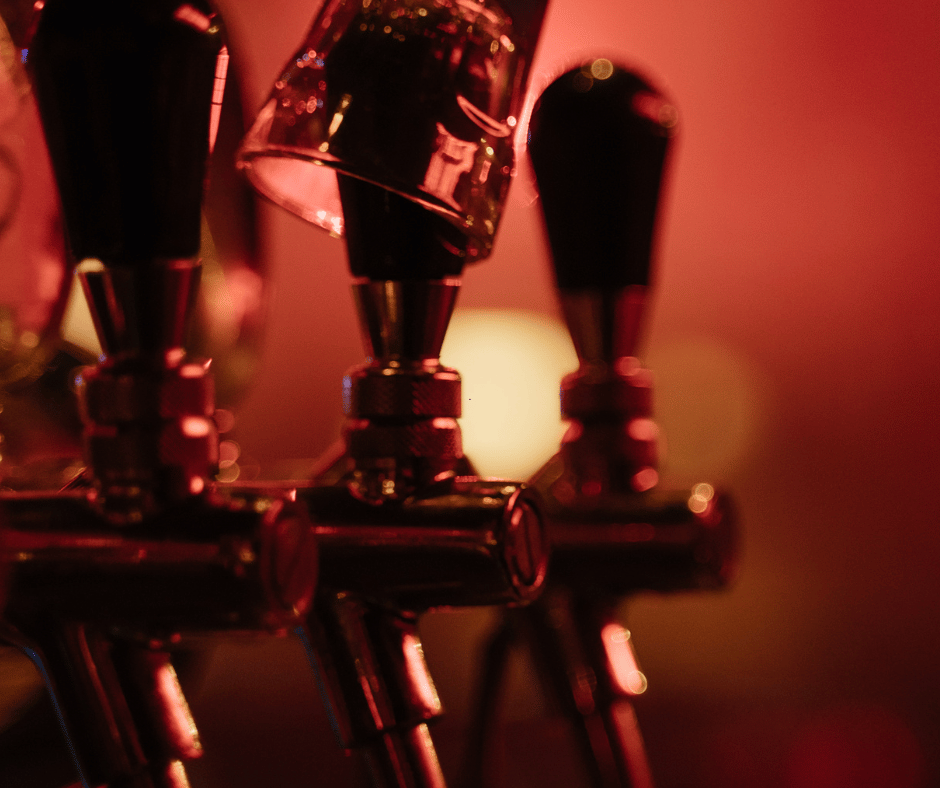
Why Beverage CO₂ Quality Should Never Be Overlooked
Every beverage producer knows that taste, consistency, and quality define their brand. But many overlook one crucial ingredient—CO₂ purity. The reality is that low-quality CO₂ can ruin drinks, pose safety risks, and damage brand reputation. Whether you run a brewery, soft drinks business, or bar, ensuring high-purity CO₂ is non-negotiable.
Contaminants like benzene, sulphur compounds, and hydrocarbons don’t just affect flavour—they can lead to product recalls, customer complaints, and regulatory fines. Even with beverage-grade CO₂, contamination can occur during storage, transport, or dispensing. That’s why simply choosing a trusted CO₂ supplier isn’t enough.
Go Beyond Food-Grade Standards—Safeguard Your Beverages with Filtration
If you rely on food-grade CO₂, you’re taking an unnecessary risk. Beverage-grade CO₂ undergoes additional purification, but without point-of-use filtration, your drinks remain vulnerable to contamination.
Sure Purity’s Carboguard filtration technology acts as the final line of defence, removing residual contaminants before CO₂ enters your beverages. With Carboguard, Carboguard Mini, and Carbo-Alt, beverage producers can:
- Ensure stable carbonation and consistent taste with high-purity CO₂.
- Eliminate impurities before they reach your drinks.
- Protect brand reputation by maintaining product quality and safety.
Take Control of Your CO₂ Purity—Before It Costs You
Poor CO₂ quality can lead to customer complaints, lost sales, and expensive recalls. But with the right filtration and quality control over CO2 purity measurements, you can ensure every drink meets the highest standards.
By integrating Sure Purity’s CO₂ filtration solutions, you brands can prevent contamination, comply with industry regulations, and confidently deliver the best possible product. Don’t let poor CO₂ quality put your brand at risk—ensure purity at every stage with Sure Purity. Contact us today to discover more.
